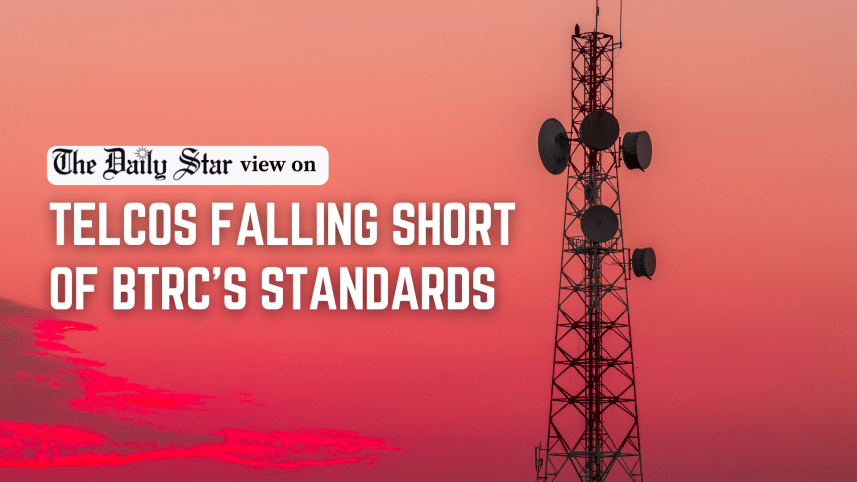Poor telecom service hurting customers

The poor performance of our telecom operators in the latest drive test conducted by the telecom regulator is disappointing, if not shocking, reinforcing the users' longstanding complaints of substandard service. The drive tests, conducted by Bangladesh Telecommunication Regulatory Commission (BTRC) between February 14 and June 5, covered areas within Dhaka city corporations as well as Narayanganj, Keraniganj, and Savar upazilas, using a newly acquired system from Germany. The results clearly show that the quality of service—a fundamental requirement enshrined in telecommunications licenses—is largely inadequate.
Robi and Grameenphone performed relatively better in the test, failing in five and six key performance indicators (KPIs) respectively out of 40 across four areas. For internet services, only the state-owned Teletalk failed to meet the BTRC's benchmarks. In terms of area-wise performance, all operators in Keraniganj exceeded the BTRC's call drop rate ceiling of 2 percent for 2G voice calls. For 4G voice calls in the upazila, only Banglalink passed the test, while all other operators failed. In Savar, regarding the BTRC's ceiling of 7 seconds for call setup time for 2G voice calls, all four operators failed, while Banglalink and Teletalk also failed in Keraniganj, and Teletalk missed the mark in Dhaka and Narayanganj. There have been other comparable failures across the board, highlighting significant deficiencies in telecom service quality.
This is reportedly due to the operators not fully utilising the spectrum from the higher bands assigned to them in March 2022. Instead, they are relying on lower-frequency bands, which provide wider coverage with fewer base stations. While the higher-frequency band has a shorter range, it offers more bandwidth and better transmission capacity, but requires a higher concentration of base stations. The failure to properly utilise this spectrum is causing customers to experience poor signal quality, frequent call drops, and muted calls.
Over the past decade, the BTRC has introduced some measures like infrastructure sharing and unified licensing to optimise operational costs. Despite these efforts, the quality of services provided by mobile operators still falls short of expectations. Since 2011, these standards have been established through consultation and negotiation with licensees. According to one expert, the recent finding, if accurate, points to a significant failure to uphold the commitments made when these licenses were granted. However, operators have refuted the BTRC's test results, claiming that their own tests show different outcomes.
Nevertheless, customer complaints about their services have remained persistent. It is, therefore, imperative that the authorities get to the bottom of what is happening and resolve all telecom-related problems. All stakeholders must understand that customers deserve high-quality service in exchange for their hard-earned money, and regulators must ensure that telecom operators deliver nothing less.



 For all latest news, follow The Daily Star's Google News channel.
For all latest news, follow The Daily Star's Google News channel. 

Comments